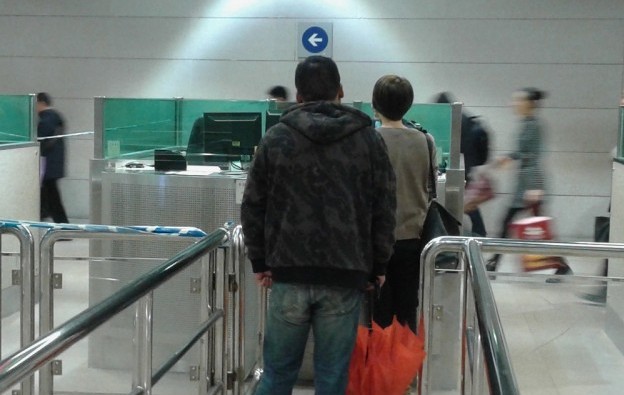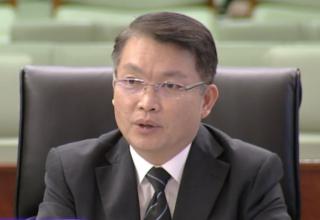Border currency declaration system proposed for Macau
Dec 02, 2016 Newsdesk Latest News, Macau, Top of the deck

The Macau government is proposing a currency declaration requirement for all travellers to and from the jurisdiction. The move, it says, will help fight the risk of money laundering in the city.
The government plans soon to send a bill on the issue for a vote at Macau’s Legislative Assembly.
The bill will propose that people entering or leaving Macau who have cash or other “negotiable monetary instruments” – for instance, cheques payable to the holder, travellers’ cheques or gold coins – valued at MOP120,000 (US$15,000) or more in their possession must submit a declaration form on the fact to the Macau Customs Service.
The forms will be kept by the body for a total of five years. After that time the declarations will be destroyed if no suspicion of wrongdoing has come to the attention of the authorities.
Those who fail to comply with the proposed reporting rules can incur fines ranging from MOP1,000 up to MOP500,000.
A spokesperson for Macau’s Executive Council – a body that advises the city’s Chief Executive – stated that the bill followed recommendations to Macau by the Paris-based Financial Action Task Force (FATF) aiming to improve the city’s anti-money laundering measures.
The spokesperson added that the proposed border currency declaration system was not connected to ongoing measures by China’s central government to strengthen measures to control capital outflows.
In 2012 the FATF published a 40-item wish-list of what it regarded as best practice for jurisdictions committed to tackling money laundering and terrorism financing. The recommendations were updated in October 2016.
Several investment analysts covering the gaming sector had mentioned in recent notes to clients that the FATF was due to conduct in the fourth quarter of 2016 an audit of Macau’s anti-money laundering safeguards. According to a Thursday note from JP Morgan Securities (Asia Pacific) Ltd, the FATF audit on Macau was conducted “two weeks ago”.
No impact on gaming: JP Morgan
Commenting on the proposed new border currency declaration system in Macau, the JP Morgan analysts said the measure was “really to adopt the international standard of anti-money laundering, [and] does not have anything to do with China’s capital control, nor does it target the gaming industry.”
Analysts DS Kim and Sean Zhuang added: “We believe this is not a regulatory tightening for the gaming industry or Chinese capital outflow into Macau, unlike some investors may fear, given its seemingly scary headline.”
They noted that “mainland Chinese can legally bring only RMB20,000 (US$2,900) per overseas trip in any case; hence, this US$15,000 limit is already five times higher than the legal limit for Chinese travellers.” In addition, VIP gamblers, “usually do not carry cash across the border” as they usually gamble on credit and other financing forms provided by junket operators.
“High-end premium mass players are mainly using UnionPay [cards] cash-back transaction at pawnshops to get gambling money (which is still legal, by the way); [and] most mid/low-end premium mass and grind-mass players, by definition, would not spend US$15,000 per trip anyways,” the two JP Morgan analysts stated.
The FATF is an intergovernmental body originally set up in 1989 by the Group of 7 countries – also known as the G7 – to combat a perceived growing global risk posed by money laundering.
A recent focus for the Macau government has been tighter controls on the large volumes of money flowing through the city’s casinos via VIP gambling. Such play is typically funded by credit issued by government-licensed gaming promoters – commonly referred to as junkets. They also arrange – via agents and sub-agents – collections on player gambling losses.
In October last year, the local regulator, the Gaming Inspection and Coordination Bureau, said junkets were being subjected to tighter accounting rules with effect from this year.
But the Macau authorities have so far resisted repeated calls by the U.S. government to reduce the reporting threshold for “large” transactions in the city’s casinos to the equivalent of US$3,000, which the U.S. says would “bring it in line with international standards”.
Macau’s gaming regulator, also known by its Portuguese acronym DICJ, said in May it had extensively revised the anti-money laundering rules for the sector, but kept the threshold set for casinos to report “large” transactions at MOP500,000.
Related articles
-
 Macau Oct mass GGR likely 113pct of...
Macau Oct mass GGR likely 113pct of...Nov 01, 2024
-
 Macau Oct 1-20 GGR US$1.8bln, as past...
Macau Oct 1-20 GGR US$1.8bln, as past...Oct 21, 2024
More news
-
 GKL provides its new table game...
GKL provides its new table game...Nov 22, 2024
-
 The Baron Upright, a new cabinet from...
The Baron Upright, a new cabinet from...Nov 22, 2024
Latest News
Nov 22, 2024
Casino operator Grand Korea Leisure Co Ltd (GKL) says it has achieved its first commercialisation of a new-to-market table game, developed via an in-house competition dating to 2021. Grand Korea...Sign up to our FREE Newsletter
 (Click here for more)
(Click here for more)
Pick of the Day
”As we navigate the final steps of the licensing process, we remain confident in our ability to align with Brazil’s regulatory requirements”
Eusebio Tanco
Chairman of DigiPlus Interactive
Most Popular
 Macau to get 36mln visitors in 2025: Secretary Lei November 21, 2024
Macau to get 36mln visitors in 2025: Secretary Lei November 21, 2024  Gaming technology firm IGT reports hacking incident November 21, 2024
Gaming technology firm IGT reports hacking incident November 21, 2024  EBITDA a focus in Macau market share battle: Jefferies November 21, 2024
EBITDA a focus in Macau market share battle: Jefferies November 21, 2024  Macau 2025 GGR could top US$30bln govt forecast: Citi November 20, 2024
Macau 2025 GGR could top US$30bln govt forecast: Citi November 20, 2024  Macau big-event outdoor venue gets trial run Dec 28: CE November 20, 2024
Macau big-event outdoor venue gets trial run Dec 28: CE November 20, 2024









